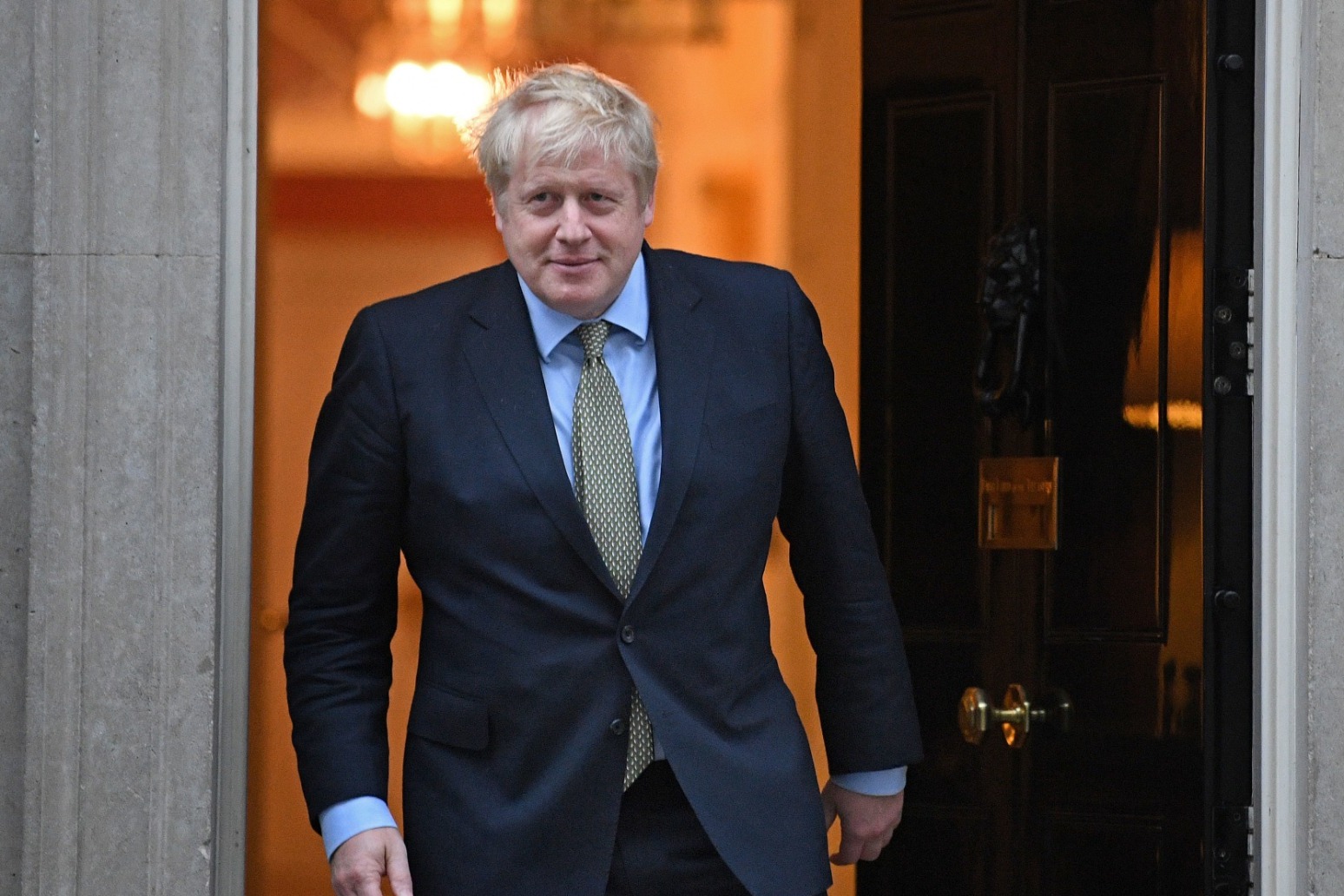
JOHNSON: IRAN'S SOLEIMANI HAD BRITISH BLOOD ON HIS HANDS
Boris Johnson has called for tensions to be eased in the Gulf but said the Iranian general killed by US forces had British blood on his hands. The Prime Minister condemned missile strikes launched by Iran against coalition military bases in Iraq in retaliation for the US killing of General Qassem Soleimani.
He urged Tehran to hold back from further "reckless and dangerous attacks" and told US President Donald Trump there was a need for "urgent de-escalation".
At the first Prime Minister's Questions session since the election, Mr Johnson said: "We of course condemn the attack on Iraqi military bases hosting coalition forces.
"Iran should not repeat these reckless and dangerous attacks but must instead pursue urgent de-escalation."
He said Gen Soleimani, who was killed by a US drone strike on January 3, "had the blood of British troops on his hands" because he had "supplied improvised explosive devices to terrorists".
In a call with Mr Trump, the Prime Minister stressed the need for "urgent de-escalation to avoid further conflict".
The message was echoed by Foreign Secretary Dominic Raab after talks with US Secretary of State Mike Pompeo in Washington on Wednesday night. Mr Raab called for restraint from both sides and welcomed Mr Trump's calls earlier in the day for a diplomatic resolution, while also stressing the need to restrict Iran's nuclear ambitions.
"We made clear we recognise the danger and threat that Iran poses to the region. We also recognise the US right to set its self-defence (but) at the same time, of course we want to see the tensions de-escalated," Mr Raab said in a broadcast interview.
"We want to find a diplomatic route through and that's why I think the president's remarks today about a diplomatic resolution were so important.
"Of course it also means the government in Iran needs to be willing and committed to the outcome as well."
Mr Raab said the UK and its American and European counterparts were "absolutely committed" to avoiding Iran acquiring a nuclear weapon.
He reiterated Britain's commitment to the Joint Comprehensive Plan of Action (JCPOA) on restricting Iran's nuclear programme, despite the US' withdrawal from the initiative, whilst bemoaning Iran's "acute" non-compliance with the pact.
"We want to see Iran come back to full compliance and we will be looking at all measures including potentially triggering the DRM," he said of the deal's dispute resolution mechanism.
Asked if he was clear about the legality of the US assassinating Gen Soleimani, Mr Raab said: "It's not for us to substitute our judge for the operation decision the US makes, but there is clearly a right of self-defence and through international law."
There were signs that the two sides were stepping back from the brink of a potentially devastating war following the missile barrage which hit bases used by US and British troops.
US officials said 15 missiles were fired, with 10 striking the Ain al-Asad base 100 miles west of Baghdad, one striking a base in Irbil in northern Iraq's semi-autonomous Kurdish region and four missing their targets.
Mr Johnson said: "As far as we can tell there were no casualties last night sustained by the US and no British personnel were injured in the attacks."
Mr Trump said Iran appeared to be "standing down" following the attack and said an early warning system had prevented casualties from the missile strikes.
But there have been mixed signals from Tehran on whether further strikes could be expected.
Foreign minister Mohammad Javad Zarif said Iran "took and concluded proportionate measures in self-defence" against the bases which had launched the attack on Gen Soleimani and "we do not seek escalation or war, but will defend ourselves against any aggression".
But Iranian president Hassan Rouhani tweeted: "Our final answer to his assassination will be to kick all US forces out of the region."
And Iran's supreme leader Ayatollah Ali Khamenei made clear that the ballistic missile strikes were a "slap" rather than a full retaliation.
"Last night they received a slap," he said. "These military actions are not sufficient (for revenge).
"What is important is that the corrupt presence of America in this region comes to an end."
Published: by Radio NewsHub